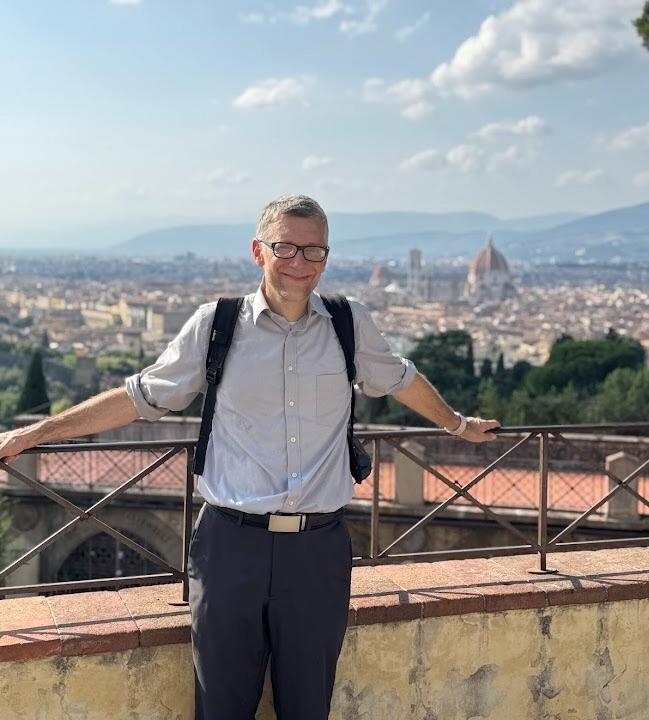Education:
B.A., 2002, Michigan State University
M.A., 2003, Northwestern University
Ph.D., 2008, Northwestern University
About Dr. Maxson:
Dr. Maxson’s research focuses on medieval and early modern Europe, especially the Italian Renaissance. From 2022-2024 he was articles editor of Renaissance Quarterly, and he is a co-founder and current organizer of the ePublic of Letters. His work has been funded by the Seminarium Philologiae Humanisticae at KU-Leuven, the American Philosophical Society, the Massachusetts Historical Society, Villa I Tatti (the Harvard University Center for Italian Renaissance Studies, the Fulbright Program, and others. Over a six-month period between 2022 and 2023 he published four different books, including A Short History of Florence and the Florentine Republic, which seeks to offer an updated, accessible and interdisciplinary introduction to that important city. He is currently working on two book projects. The first focuses on the creation and influence of the idea of the Italian Renaissance in the United States from the fifteenth century to the present. The second examines how and why fifteenth-century Italians believed the words spoken and written by humanists, even when those words obviously contradicted their lived experience.
Areas of Academic Specialty
Europe between 1050 and 1700
Political, diplomatic, cultural, and social history Italy
Selected Publications:
Dr. Maxson maintains an updated profile on academia.edu. For more information on his publications, please visit https://etsu.academia.edu/BrianMaxson
 Sam Wilson West Parking Lot C...
Sam Wilson West Parking Lot C... 